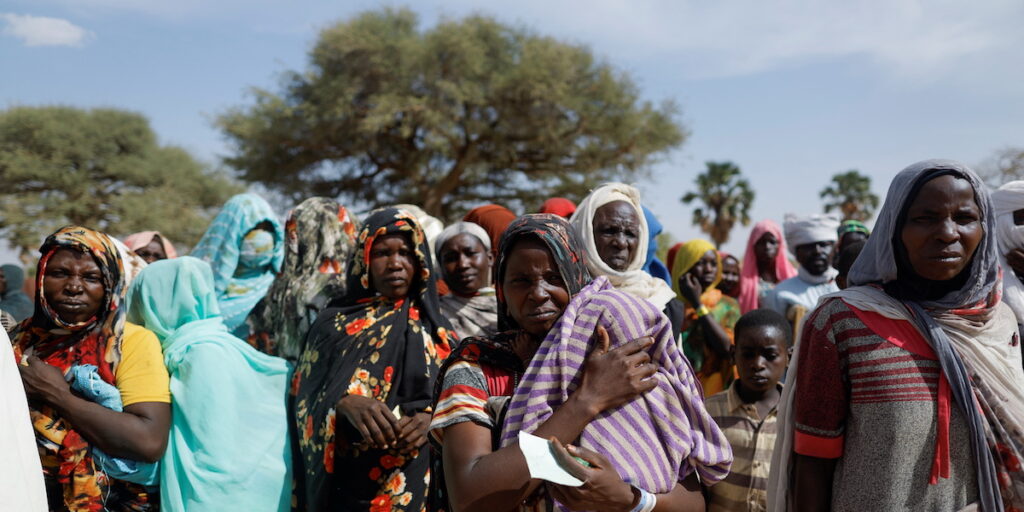Over the past 15 months, a war between Sudan’s National Armed Forces and the Rapid Support Forces paramilitary has plunged the nation into one of the world’s worst humanitarian crises, with an estimated 16,000 killed and some 10 million more displaced.
Facing internet and telecommunications blackouts in many areas of the country, thousands of Sudanese have found a lifeline through Elon Musk’s aerospace company SpaceX. With its constellation of low-earth orbit satellites, SpaceX’s Starlink service is able to provide high-speed, low-cost internet anywhere on the planet, allowing Sudanese civilians to communicate with and receive aid from relatives and friends despite blackouts.
But the company has since announced plans to stop the service. Nearly 100 humanitarian aid groups have sent a letter to Musk urging him not to proceed with the decision, condemning it as a violation of human rights and a collective punishment of millions of citizens.
Nearly 100 humanitarian aid groups have sent a letter to Elon Musk urging him not to proceed with the decision, condemning it as a violation of human rights and a collective punishment of millions of citizens.
While smuggled Starlink terminals appear to have been used by RSF militia soldiers — a group that’s committed brutal massacres and acts of ethnic cleansing — rights and aid organizations say that ending Starlink’s service will risk vital humanitarian relief and financial aid, exacerbating the humanitarian crisis facing millions of Sudanese.
In 2023, internet penetration in Sudan stood at 28.4% of the population. This entire network was taken down by the RSF militia in April 2024, imposing a blackout on the whole country. A recent map created by an independent local news platform showed that the network has been partially restored. But Starlink remains the main internet source in different parts of the country, especially in populated areas such as Khartoum, Aljazira state and Darfur.
The impact of stopping Starlink on people’s lives will be dire. Sudanese are now relying on receiving support from their relatives outside the country through online money transfer apps, making them the main lifeline to meet their needs and survive. In addition, Starlink is crucial for communication between family members. Humanitarian agencies and NGOs are also depending on the service to distribute aid.
In the dark, with no fear of exposure, those brutalizing the Sudanese people will only be emboldened to commit more crimes and massacres.
Moreover, the internet and social media are now the main tools to document war violations and understand the events on the ground. Removing them from the equation leaves fertile ground for disinformation to grow. In the dark, with no fear of exposure, those brutalizing the Sudanese people will only be emboldened to commit more crimes and massacres.

To be sure, there are real security concerns at hand for SpaceX, just as there were when Starlink was used by Russian war criminals attacking Ukraine. SpaceX responded then by blocking Russia from accessing the service.
But Elon Musk cannot both tout the truly incredible humanitarian value of Starlink’s services while shutting them down anytime legal and public relations quandaries emerge. Thousands of lives hang on the line.
Starlink has not officially been authorized for use in Sudan. But as the Wall Street Journal reports, the RSF and civilians have found a workaround. The RSF has reportedly purchased hundreds of Starlink terminals from dealers in the United Arab Emirates, according to the Journal, and civilians have also purchased kits through a thriving underground market.
Early reports that SpaceX is now looking into an official distributor to operate Starlink in Sudan are encouraging. Indeed, given the humanitarian crisis and the fact that more than two-thirds of the population is estimated to fall under the poverty line, SpaceX should consider reducing its fees and making its service more affordable for Sudanese civilians.
The continuation of Internet service is crucial to these Sudanese people during this war. Both SpaceX and the Sudanese government should work to keep the service active and prioritize the cause of alleviating human suffering.

